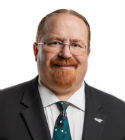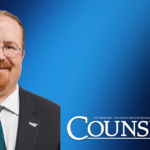Share
As leaders in the addiction treatment profession, we all could have predicted our current scenario: keep underpaying the workforce and it will constrict, services will be limited, and people will die. What we did not know is that the pandemic and wage inflation would accelerate this process to warp speed.
As many states, including California, are struggling to address workforce shortages, I implore policymakers and elected officials to examine the core issue we all face: society continues to stigmatize people with addiction by consistently paying addiction professionals less than their mental health and physical health counterparts.
We are inundated daily with stories of despair about overdoses, suicides, and homelessness. In the United States, opioid overdose deaths alone surpassed 75,000 from April 2020 to April 2021 (CDC, 2021) and teen deaths attributed to opioid overdose have doubled since 2019 (McCormick, 2022). Yet still no one seems to be connecting the dots between the lack of investments in treatment professionals and the poor outcomes that follow. When counselor positions remain vacant for months on end because retailers like Amazon and Target are paying workers higher rates and offering their workers hiring bonuses, it is no surprise that an overworked, underpaid, and stressed-out addiction counseling workforce is leaving us. Does society value the timely delivery of goods and tidy store aisles more than saving the lives of thousands and thousands of people? Apparently. Andrew Kessler, JD, a federal policy liaison for the Behavioral Health Association of Providers (BHAP) says,
As for the federal government, both Congress and the White House are aware of the current workforce shortage. At present, the best ideas they have revolve around loan repayment programs. Yet their attention must also turn to retention, as we need to maintain a strong workforce once it is built. Without addressing low reimbursement rates and stressful working conditions, our recruitment efforts will just result in a revolving door of professionals (P. Nielsen, April 26, 2022, personal communication).
With the outcry for a solution heard across the nation, and with only a few ready to answer the call, substance use disorder (SUD) professionals are willing and ready—from credentialed counselors and peers, to licensed professionals and doctors. We have one of the most dedicated and caring workforces on the planet. We are the experts in the room, even though we are few in numbers. If we are ever to make a dent in the opioid/addiction epidemic, we must increase our numbers, infuse new blood into the system by recruiting high school and college students to become addiction professionals, and raise the standard of living for those who choose this career path.
“We understand the importance of protecting the public better than anyone. We have been creating competency-based exams since 1981. I pose this question: Why is it that the most valued workers are often paid the least? To continue to help those who are fighting addiction, we must support, grow, and maintain a workforce that will combat that disease,” states Mark Attanasi, executive director of the International Consortium of Certification and Reciprocity (IC&RC; P. Nielsen, April 26, 2022, personal communication). According to Attanasi, we can do this in three simple steps:
- “Build a sustainable workforce that incentivizes individuals to enter the field of prevention and substance abuse counseling”
- “Continue to breakdown the stigma of addiction”
- “Create revenue streams for competency-based counselors and treatment facilities to help individuals” (P. Nielsen, April 26, 2022, personal communication).
The disease of addiction is real and is not going away, so let us work together to fight it. But how do we rise from the low points we are currently experiencing?
We accomplish this by having a plan that addresses the career ladder from top to bottom. With a significant focus on expanding the peer workforce, there must be an equal focus to increase the credentialed counselor workforce. Additionally, as states move toward integrated models of care it is imperative that every state has licensed addiction counselors. A license implies equal competency and professionalism of other practitioners treating the complex needs of people with addiction, and it also figures predominantly in workforce retention. After all, why stay in our profession if the grass is greener and the pay is higher next door at the mental health clinic? California is finally moving toward licensure for just that reason: to increase the longevity and robustness of the California addiction treatment workforce.
Of course, we cannot forget the middle of the workforce: the unlicensed, yet highly qualified worker. As we can picture, a ladder with rungs on the bottom and top, with no middle rungs to climb, leads nowhere. States that, in the past, moved toward licensure and abandoned certified counselors are now revisiting this approach. We need all hands on deck to stretch our poorly funded system to accommodate increasing needs. From those who provide services from their ivory towers, to those who ride a bike to work, and everyone in between, we need to recognize the skill, education, and dedication of each and we need to pay them competitively so they can continue their work.
References
- Centers for Disease Control and Prevention (CDC). (2021). Drug overdose deaths in the US top 100,000 annually. Retrieved from https://www.cdc.gov/nchs/pressroom/nchs_press_releases/2021/20211117.htm
- McCormick, E. (2022). US teen overdose deaths double in three years amid fentanyl crisis. The Guardian. Retrieved from https://www.theguardian.com/us-news/2022/apr/12/drug-overdose-deaths-us-high-school-teens-study
About Me
Pete Nielsen is the President & Chief Executive Officer for the California Consortium of Addiction Programs and Professionals (CCAPP), CCAPP Credentialing, CCAPP Education Institute, and the National Behavioral Health Association of Providers (NBHAP). CCAPP is the largest statewide consortium of addiction programs and professionals, and the only one representing all modalities of substance use disorder treatment programs. NBHAP is the leading and unifying voice of addiction-focused treatment programs nationally. Mr. Nielsen has worked in the substance use disorders field for 20 years. In addition to association management, he brings to the table experience as an interventionist, family recovery specialist, counselor, administrator, and educator, with positions including campus director, academic dean, and instructor.
Mr. Nielsen is the secretary of the International Certification and Reciprocity Consortium and the publisher for Counselor magazine. He is a nationally known speaker and writer published in numerous industry-specific magazines. Mr. Nielsen holds a Master of Science in Counseling Psychology and a Bachelor of Science in Business Management.












 Counselor Magazine is the official publication of the California Association of Addiction Programs and Professionals (CCAPP). Counselor offers online continuing education, article archives, subscription deals, and article submission guidelines. It has been serving the addiction field for more than thirty years.
Counselor Magazine is the official publication of the California Association of Addiction Programs and Professionals (CCAPP). Counselor offers online continuing education, article archives, subscription deals, and article submission guidelines. It has been serving the addiction field for more than thirty years.